Electronics Design Engineer/Lead

Xook
Company
At Xook, we are building a new food distribution model powered by a fleet of fully cloud-controlled robots. We believe in a future where every person could have freshly made food tailored to their personalized taste whenever they want and are committed to making it a reality using digital recipes, IoT, and robotics.
As an organization, we strive to build a culture that encourages people to take ownership of areas, constantly innovate, raise concerns openly, be open to feedback, and learn from mistakes. As an engineer joining the startup during its growth phase, you would get to work closely with the founders who've been part of the leadership teams of companies like Curefit, Ola, Inmobi, Livspace, etc., and work on a variety of problems across the stack and grow along with the company.
Position Overview:
We are looking to add to our team, an ambitious and highly skilled Electronics Design Engineer/Lead with 3-15 years of experience developing products that are available in the market and used by consumers.
The ideal candidate would have experienced the entire product development lifecycle for a complete product, or a few components, all the way from design to manufacturing and feedback driven iterations post launch. We expect the person to be innovative, detail-oriented, have a process-oriented approach and have a strong ability to work in a collaborative team environment.
Key Responsibilities:
Hardware Design & Development:
Design and develop complex hardware systems and be hands-on with schematic design, PCB layout, and component selection.
Develop and implement hardware prototypes, ensuring they meet design specifications and performance requirements.
Conduct simulations, analysis, and testing of hardware designs to ensure functionality, reliability, and performance.
Product Development:
Collaborate with cross-functional teams (software, firmware, mechanical, and manufacturing) to integrate hardware designs into complete products.
Participate in the entire product development lifecycle, from concept through to mass production.
Develop and maintain detailed documentation, including design specifications, test plans, and user manuals.
Testing & Validation:
Develop and execute hardware testing protocols to validate design performance and reliability.
Perform debugging and troubleshooting of hardware issues, ensuring quick resolution.
Conduct Design for Test (DFT) and Design for Manufacturing (DFM) reviews to optimize designs for production.
Project Management:
Lead hardware projects, ensuring they are completed on time, within budget, and meet quality standards.
Coordinate with suppliers and manufacturers for component sourcing, PCB fabrication, and assembly processes.
Provide technical guidance and mentorship to junior engineers and team members.
Continuous Improvement:
Stay updated with the latest advancements in hardware design, technologies, and industry best practices.
Contribute to the continuous improvement of design processes, tools, and methodologies.
Drive innovation and propose new ideas for product enhancement and development.
Qualifications:
Bachelor’s or Master’s degree in Electrical Engineering, Electronics, or a related field.
3-15 years of experience in hardware design and development, with a strong portfolio of successful projects.
Must-Have Skills:
Proficiency in hardware design tools such as Altium Designer, OrCAD, or similar.
Solid understanding of analog and digital circuit design, signal integrity, power electronics, and embedded systems.
Experience with PCB design, layout, and fabrication processes.
Familiarity with microcontrollers, FPGAs, and communication protocols (e.g., SPI, I2C, UART, Ethernet).
Strong problem-solving skills and the ability to work independently or as part of a team.
Excellent communication skills, both verbal and written, with the ability to convey complex technical concepts to non-technical stakeholders.
Experience with regulatory compliance and industry standards (e.g., CE, FCC, RoHS) is a plus.
Preferred Skills:
Experience in RF design, high-speed digital design, or power management.
Familiarity with software programming (C/C++, Python) for hardware testing and automation.
Knowledge of thermal management and mechanical considerations in hardware design.
Experience working in Agile/Scrum environments.


